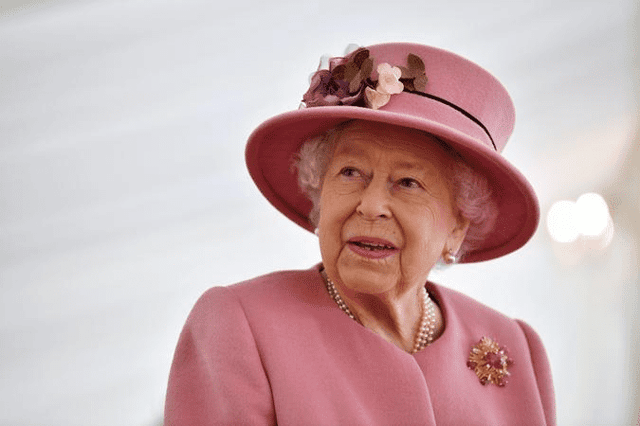Oxford students vote to remove Queen’s portrait as she is ‘colonial symbol’


Gavin Williamson has branded a reported move by Oxford University students to remove the Queen’s picture from their common room, because she is a symbol of colonialism, as “simply absurd”.
Members of the Magdalen College Middle Common Room, which is made up of post-graduate students, overwhelmingly voted to remove the portrait, according to reports.
Advertisement
Hide AdAdvertisement
Hide AdPolitical website Guido Fawkes reported the motion was launched to make members “feel welcome”, with one student said to have commented “patriotism and colonialism are not really separable”.
The alleged decision sparked a backlash on Twitter, with the president of Magdalen College swiftly moving to distance the institution itself from the students involved.
‘Absurd’
On Tuesday evening, the Education Secretary tweeted: “Oxford University students removing a picture of the Queen is simply absurd.
“She is the Head of State and a symbol of what is best about the UK. During her long reign she has worked tirelessly to promote British values of tolerance, inclusivity and respect around the world.”
‘University is more than studying’
Advertisement
Hide AdAdvertisement
Hide AdBarrister Dinah Rose, who was appointed president of Magdalen College last year, emphasised that the students were not representative of the college, but supported their right to “free speech and political debate”.
In a series of tweets, she said: “Here are some facts about Magdalen College and HM the Queen.
“The Middle Common Room is an organisation of graduate students. They don’t represent the College.
“A few years ago, in about 2013, they bought a print of a photo of the Queen to decorate their common room.
Advertisement
Hide AdAdvertisement
Hide Ad“They recently voted to take it down. Both of these decisions are their own to take, not the College’s.
“Magdalen strongly supports free speech and political debate, and the MCR’S right to autonomy.
“Maybe they’ll vote to put it up again, maybe they won’t. Meanwhile, the photo will be safely stored.”
She finished: “Being a student is about more than studying. It’s about exploring and debating ideas. It’s sometimes about provoking the older generation.
“Looks like that isn’t so hard to do these days.”
‘Unnecessary addition to the common room’
Advertisement
Hide AdAdvertisement
Hide AdIn a statement to Mail Online, MCR president Matthew Katzman said: “The action was taken after a discussion of the purpose of such a space, and it was decided that the room should be a welcoming, neutral place for all members regardless of background, demographic, or views.
“The Royal Family is on display in many areas of the college, and it was ultimately agreed that it was an unnecessary addition to the common room.
“The views of the MCR do not reflect the views of Magdalen College, and the aesthetic decisions made by the voting members of its committee do not equate to a statement on the Queen.
“Indeed, no stance was taken on the Queen or the Royal Family – the conclusion was simply that there were better places for this print to be hung.”
Advertisement
Hide AdAdvertisement
Hide AdOn its website, Magdalen College Middle Common Room described itself as “one of the biggest graduate communities of the traditional Oxford Colleges”.
It states: “Our graduates come from many different countries throughout the world, and have diverse interests, academic and otherwise.
“The MCR forms an integral part of the Magdalen graduate experience – not only do we organise social and cultural events for students so that we can make the utmost out of our time in Oxford, but we also provide a network of support for graduate life in representing the concerns of students to the College.”
Mr Williamson has been a vocal opponent of so called no-platforming of speakers on university campuses who hold controversial views.
Advertisement
Hide AdAdvertisement
Hide AdIn May, the Department for Education introduced new legislation to Parliament to protect the rights of visiting speakers through the Higher Education (Freedom of Speech) Bill.
If passed, the bill could see universities face fines if those invited to speak are cancelled as a result of their views.
For the first time, students’ unions will also be required to take steps to protect the freedom of speech for both its members and visiting speakers.
The Office for Students (OfS), the higher education regulator in England, would have the power to impose fines on institutions if they breached this condition.
Advertisement
Hide AdAdvertisement
Hide AdAcademics, students or visiting speakers will be able to seek compensation through the courts if they suffer loss from a breach of the free speech duties.
Mr Williamson said last month: “Our legal system allows us to articulate views which others may disagree with as long as they don’t meet the threshold of hate speech or inciting violence.
“This must be defended, nowhere more so than within our world-renowned universities.”
Mr Williamson said the measures were needed to counter “the chilling effect of censorship on campus once and for all”.